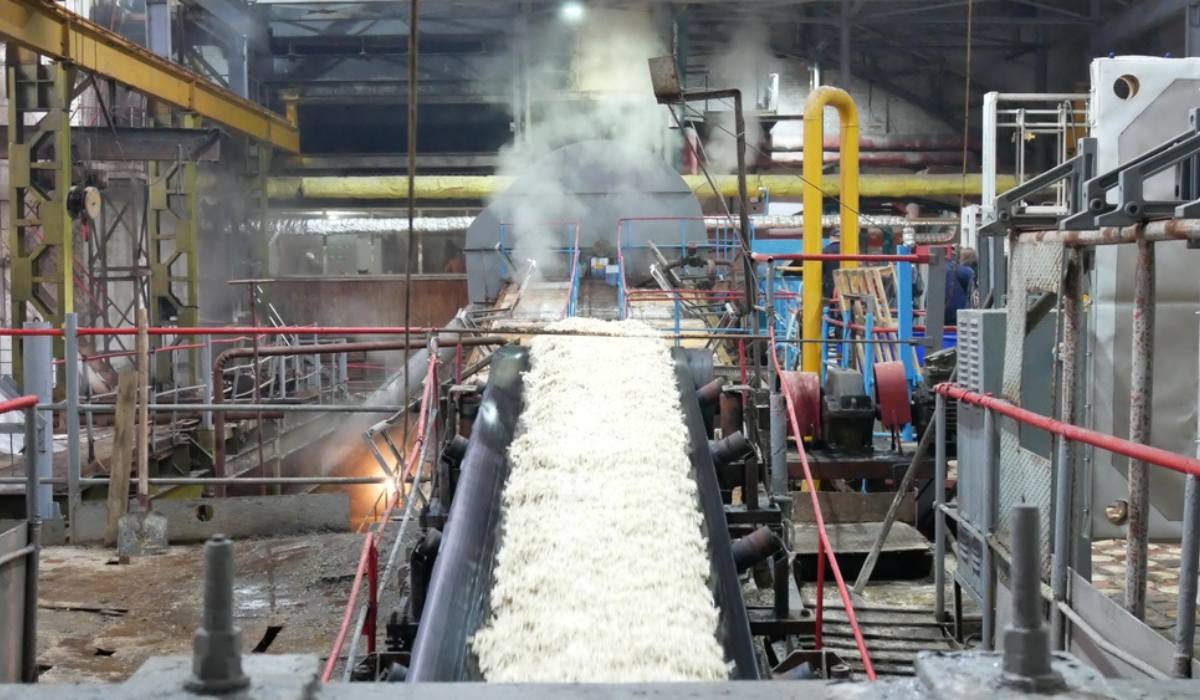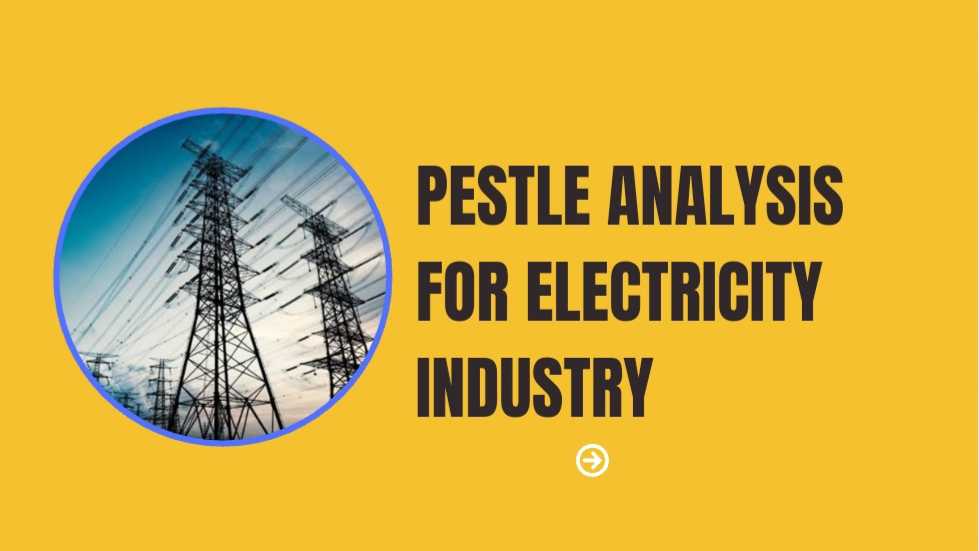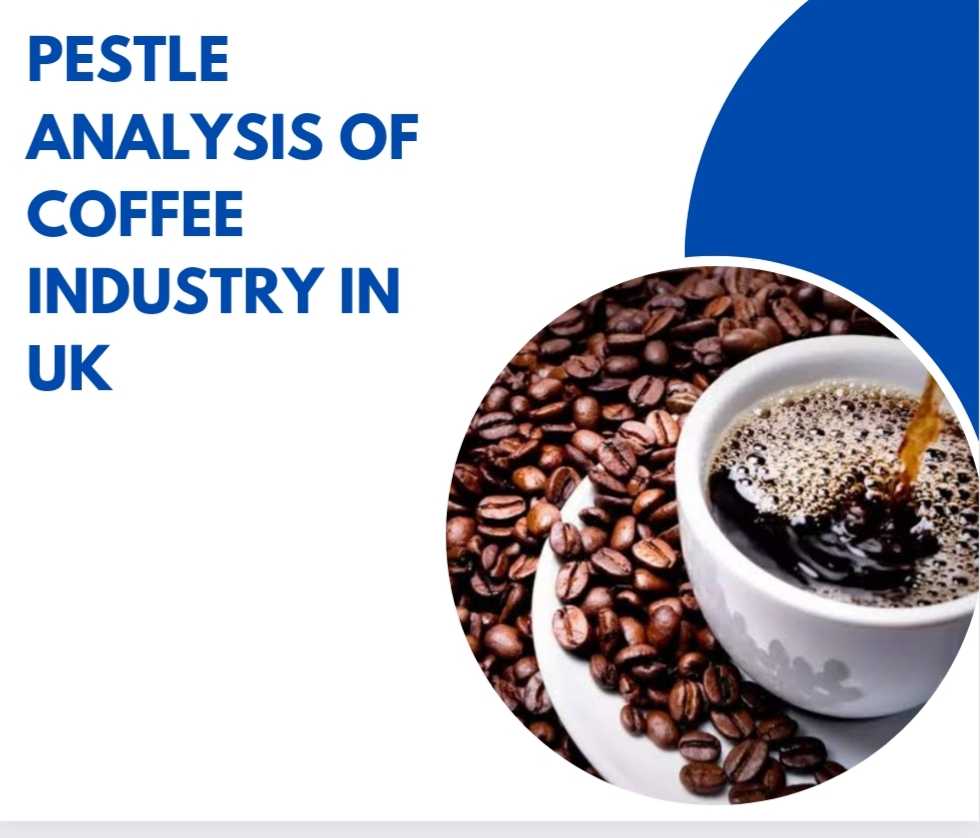The sugar industry, a cornerstone of the global economy, plays a pivotal role in various sectors ranging from food and beverage to pharmaceuticals and biofuel production. Conducting a PESTLE analysis, which stands for Political, Economic, Socio-Cultural, Technological, Legal, and Environmental factors, is essential for comprehensively understanding the external environment impacting this industry.
By examining each of these facets, one can gain insights into the challenges, opportunities, and trends shaping the sugar industry’s landscape. From governmental regulations and economic fluctuations to shifting consumer preferences and technological advancements, the sugar industry operates within a dynamic framework influenced by multifaceted external forces. This analysis is instrumental in strategizing and adapting to the ever-evolving conditions, fostering sustainable growth and competitiveness within the sugar sector.
Table of Contents
TogglePolitical Factors of Sugar Industry
The sugar industry, like any other sector, is influenced by various political factors that can shape its operations, regulations, and market dynamics. Here are some key political factors that can affect the sugar industry:
- Government Subsidies and Support: Government policies regarding subsidies and support for the sugar industry can significantly impact its profitability and competitiveness. Subsidies may include direct payments to sugar producers, price supports, or tariffs on imported sugar to protect domestic producers.
- Trade Policies: Trade agreements and tariffs imposed on sugar imports and exports can have a significant effect on the sugar industry. Protectionist measures such as import tariffs or quotas can shield domestic sugar producers from foreign competition but may also lead to higher prices for consumers.
- Regulations and Legislation: Government regulations on sugar production, processing, labeling, and marketing can impact the operations of sugar companies. Regulations may cover areas such as environmental protection, labor standards, food safety, and health warnings related to sugar consumption.
- Biofuel Policies: In some countries, government policies promoting biofuels, such as ethanol produced from sugarcane, can affect the demand for sugar and influence investment decisions in the sugar industry. For example, mandates requiring the blending of ethanol with gasoline can create additional demand for sugarcane.
- Political Stability and Governance: Political stability and effective governance are crucial for the smooth functioning of the sugar industry. Political instability, corruption, or inconsistent policies can disrupt production, distribution, and investment in the sugar sector, leading to market uncertainty and volatility.
- International Agreements and Organizations: Participation in international agreements and organizations, such as the World Trade Organization (WTO) and regional trade blocs, can shape the regulatory environment for the sugar industry. Disputes over trade rules, subsidies, or market access can impact sugar producers’ competitiveness.
- Environmental Policies: Government policies aimed at addressing environmental concerns, such as deforestation, water usage, and carbon emissions associated with sugar production, can influence industry practices and investments in sustainable technologies.
- Health and Nutrition Policies: Increasing awareness of the health risks associated with excessive sugar consumption has led some governments to implement policies such as sugar taxes, advertising restrictions, or labeling requirements aimed at reducing sugar consumption and promoting healthier diets.
Overall, the sugar industry operates within a complex political landscape shaped by government policies, regulations, and international agreements that can have far-reaching effects on production, trade, and market dynamics.

Economic Factors of Sugar Industry
The sugar industry is influenced by various economic factors that shape its operations, profitability, and market dynamics. Some of the key economic factors affecting the sugar industry include:
- Global Supply and Demand: The balance between global sugar supply and demand heavily impacts sugar prices. Factors such as weather conditions affecting crop yields, changes in consumer preferences, and government policies on import/export influence supply and demand dynamics.
- Government Policies and Subsidies: Government policies, including subsidies, tariffs, and trade agreements, have a significant impact on the sugar industry. Subsidies to sugar producers can artificially lower production costs and affect global market prices. Tariffs and trade agreements can also influence the flow of sugar imports and exports between countries.
- Price of Alternative Sweeteners: The price and availability of alternative sweeteners such as high-fructose corn syrup (HFCS) and artificial sweeteners can affect the demand for sugar. Changes in relative prices can lead manufacturers to switch between sweeteners, impacting sugar consumption.
- Cost of Production: Factors such as labor costs, energy prices, technology adoption, and agricultural inputs (fertilizers, pesticides) affect the cost of sugar production. Efficiency gains through technological advancements can reduce production costs and improve competitiveness.
- Exchange Rates: Fluctuations in exchange rates impact the competitiveness of sugar exports and imports. A weaker domestic currency can make exports more competitive but increase the cost of imported inputs, while a stronger currency can have the opposite effect.
- Environmental Regulations: Regulations related to environmental sustainability, such as restrictions on water usage and land management practices, can affect sugar production costs and operational practices. Compliance with environmental standards may require investments in technologies and infrastructure.
- Market Concentration and Competition: The level of market concentration and competition within the sugar industry can influence pricing power and profitability. Consolidation among sugar producers can affect market dynamics, pricing strategies, and the ability of smaller producers to compete.
- Consumer Preferences and Health Concerns: Shifting consumer preferences towards healthier products and concerns about the health impacts of excessive sugar consumption can influence demand for sugar-containing products. Sugar companies may need to adapt their product portfolios and marketing strategies to align with changing consumer trends.
- Energy Prices: Sugar production often requires significant energy inputs for processing and transportation. Fluctuations in energy prices, particularly those of fossil fuels, can impact production costs and profitability for sugar producers.
- Investment and Technological Innovation: Investment in research and development, as well as technological innovation, can drive productivity improvements, reduce costs, and enhance competitiveness within the sugar industry. Advancements in biotechnology, crop genetics, and production processes can lead to higher yields and improved sustainability.
Understanding and effectively managing these economic factors is crucial for sugar industry stakeholders to navigate market dynamics, mitigate risks, and capitalize on growth opportunities.

Social Factors of Sugar Industry
The sugar industry is influenced by various social factors that shape its production, consumption, and overall dynamics. Some of these social factors include:
- Cultural Consumption Patterns: Cultural preferences and traditions significantly impact sugar consumption patterns. In some cultures, there is a high demand for sugary products as part of traditional cuisine or rituals, while in others, there might be a growing trend towards reducing sugar intake due to health concerns.
- Health Awareness and Trends: Increasing awareness of the health risks associated with excessive sugar consumption has led to changing consumer preferences and demands for healthier alternatives. This trend can influence the sugar industry by prompting shifts towards low-calorie sweeteners or alternative sweeteners.
- Government Policies and Regulations: Social attitudes towards health and wellness often inform government policies and regulations related to sugar production, labeling, advertising, and taxation. For example, policies aimed at reducing obesity or diabetes rates might include measures such as sugar taxes or mandatory labeling of added sugars.
- Labor Practices and Working Conditions: The sugar industry’s workforce and labor practices are significant social factors. Issues such as fair wages, worker safety, and labor rights can impact the industry’s operations and reputation. Social movements advocating for fair labor practices may influence public perception and demand for ethically sourced sugar products.
- Education and Awareness Campaigns: Educational initiatives and public awareness campaigns play a role in shaping consumer behavior regarding sugar consumption. Efforts to educate the public about the health effects of sugar, such as through school programs or media campaigns, can influence purchasing decisions and overall demand for sugary products.
- Social Justice and Equity Concerns: Social justice movements may draw attention to disparities within the sugar industry, such as unequal distribution of wealth, land rights issues, or environmental justice concerns related to sugar production’s impact on local communities. These movements can influence public opinion, consumer behavior, and corporate practices within the industry.
- Changing Demographics: Demographic shifts, such as population growth, urbanization, and aging populations, can impact sugar consumption patterns and market demand. For example, urbanization may lead to increased demand for processed foods containing added sugars, while aging populations may prioritize health-conscious diets with reduced sugar intake.
- Media and Advertising Influences: Media portrayal and advertising campaigns can shape societal norms and perceptions related to sugar consumption. Positive or negative media coverage of the sugar industry, health effects of sugar, or alternative sweeteners can influence consumer attitudes and behaviors.
Understanding and responding to these social factors is essential for stakeholders in the sugar industry to adapt to changing consumer preferences, comply with regulations, and maintain social license to operate in an increasingly health-conscious and socially aware global market.
Technology Factors of Sugar Industry
The sugar industry, like many others, is heavily influenced by various technological factors that impact its production, processing, and distribution. Here are some key technological factors affecting the sugar industry:
- Agricultural Technology: Improvements in agricultural technology have a significant impact on sugar cane cultivation. Advancements such as precision agriculture, genetically modified crops, and improved irrigation techniques can enhance crop yields, reduce costs, and minimize environmental impact.
- Mechanization: Mechanization plays a vital role in harvesting sugar cane efficiently. Modern machinery such as mechanical harvesters, planters, and tractors increase productivity, reduce labor costs, and streamline operations.
- Biotechnology: Biotechnological advancements offer opportunities to enhance sugar production through genetic engineering of sugar cane for improved yield, disease resistance, and tolerance to environmental stressors.
- Processing Technology: Technological innovations in sugar processing facilitate the extraction of sugar from sugar cane or sugar beet. Advanced milling, clarification, and evaporation processes improve efficiency, reduce energy consumption, and enhance sugar quality.
- Energy Efficiency: Sugar production is energy-intensive, but technological advancements, such as cogeneration systems, allow sugar mills to generate electricity from biomass residues (bagasse). This not only reduces dependence on fossil fuels but also provides an additional revenue stream.
- Automation and Robotics: Integration of automation and robotics in various stages of sugar production, such as harvesting, processing, and packaging, can improve efficiency, consistency, and safety while reducing labor costs.
- Quality Control and Monitoring: Advanced technologies like sensors, IoT devices, and data analytics enable real-time monitoring of various parameters during production, ensuring product quality, optimizing processes, and minimizing waste.
- Environmental Technologies: The sugar industry faces increasing pressure to minimize its environmental footprint. Adoption of technologies such as wastewater treatment systems, carbon capture, and sustainable farming practices can help reduce pollution and mitigate environmental impact.
- Supply Chain Management Systems: Advanced supply chain management systems powered by technologies like blockchain and RFID (Radio-Frequency Identification) can enhance traceability, transparency, and efficiency in the sugar supply chain, from farm to table.
- Packaging Innovations: Technological advancements in packaging materials and techniques improve product shelf life, safety, and sustainability while reducing material usage and environmental impact.
- Information Technology: Integration of IT solutions such as ERP (Enterprise Resource Planning) systems, SCADA (Supervisory Control and Data Acquisition) systems, and AI-powered predictive analytics enhances decision-making, resource allocation, and overall operational efficiency.
These technological factors collectively shape the competitiveness, sustainability, and adaptability of the sugar industry in a rapidly evolving global market.
Legal Factors of Sugar Industry
Legal factors impacting the sugar industry can vary depending on the country or region, but some common legal considerations for the sugar industry may include:
- Regulatory Compliance: Sugar production and distribution may be subject to various regulations regarding quality standards, labeling requirements, environmental regulations, and safety standards. Compliance with these regulations is essential to avoid legal penalties and maintain consumer trust.
- Trade Policies: International trade agreements and tariffs can significantly impact the sugar industry. Tariffs, quotas, and trade restrictions imposed by governments can affect the export and import of sugar products, influencing market dynamics and profitability.
- Government Subsidies and Support: Government subsidies, incentives, and support programs may affect the competitiveness of sugar producers. Subsidies provided to domestic sugar producers can impact global market prices and trade dynamics.
- Environmental Regulations: Sugar production can have environmental implications, including land use, water consumption, and waste management. Compliance with environmental regulations related to pollution control, land use, and resource management is essential for sustainable sugar production.
- Labor Laws: The sugar industry often involves manual labor for activities such as planting, harvesting, and processing. Compliance with labor laws regarding wages, working conditions, child labor, and worker safety is crucial to avoid legal disputes and maintain ethical business practices.
- Intellectual Property Rights: Intellectual property rights may be relevant in the sugar industry concerning patented technologies, plant varieties, and trademarks for branded sugar products. Compliance with intellectual property laws and protection of proprietary assets is necessary to safeguard against infringement and maintain market competitiveness.
- Sugar Import and Export Regulations: Import and export regulations governing the movement of sugar across borders can impact international trade and market access for sugar producers. Compliance with customs regulations, tariffs, and sanitary standards is essential for smooth trade operations.
- Health and Safety Regulations: Sugar consumption has been linked to various health concerns, such as obesity and diabetes. Governments may impose regulations related to sugar content labeling, advertising restrictions, and health warnings on sugary products to protect public health and consumer interests.
- Land Use and Property Rights: Sugar cultivation requires significant land resources, and issues related to land ownership, land use rights, and property rights can arise, especially in regions with competing land uses or conflicts over land tenure.
- Food Safety Standards: Compliance with food safety standards and regulations is critical to ensure the quality and safety of sugar products for consumers. Adherence to hygiene practices, sanitation standards, and food labeling requirements is essential for maintaining consumer confidence and regulatory compliance.
Understanding and navigating these legal factors is essential for sugar industry stakeholders to operate effectively, mitigate risks, and ensure compliance with applicable laws and regulations.
Environmental Factors of Sugar Industry
The sugar industry, like any other industry, is influenced by various environmental factors that can impact its operations, sustainability, and overall success. Some of the key environmental factors affecting the sugar industry include:
- Climate Change: Climate change poses a significant threat to the sugar industry, affecting crop yields, water availability, and weather patterns. Changes in temperature and precipitation can lead to alterations in growing conditions, potentially reducing sugar cane or sugar beet yields.
- Water Availability: Sugar production requires substantial amounts of water for irrigation, processing, and cleaning. Water scarcity or competition for water resources with other sectors can pose challenges to the sustainability of sugar production, especially in regions prone to drought.
- Land Use: The expansion of sugar cane or sugar beet cultivation often involves land conversion, including deforestation or conversion of natural ecosystems. This can lead to habitat loss, biodiversity decline, and soil degradation, impacting the environment and ecosystems.
- Soil Health: Sustainable sugar production relies on maintaining healthy soils, but intensive cultivation practices can lead to soil erosion, nutrient depletion, and soil degradation. Soil erosion, in particular, can contribute to sedimentation in water bodies, affecting water quality and aquatic ecosystems.
- Pesticides and Chemicals: The use of pesticides, herbicides, and fertilizers in sugar cultivation can have environmental implications such as water pollution, soil contamination, and harm to non-target organisms like pollinators and beneficial insects. Sustainable practices, including integrated pest management, are essential to mitigate these impacts.
- Energy Consumption: Sugar processing requires significant energy inputs, primarily for milling, refining, and transportation. High energy consumption contributes to greenhouse gas emissions and air pollution, highlighting the importance of energy efficiency measures and transitioning towards renewable energy sources.
- Waste Management: Sugar production generates various waste streams, including bagasse (sugar cane residue), vinasse (a byproduct of ethanol production), and wastewater from processing. Inadequate waste management practices can lead to pollution of soil, water, and air, as well as greenhouse gas emissions from decomposition.
- Regulatory Framework: Environmental regulations and policies play a crucial role in shaping the practices of the sugar industry. Compliance with environmental standards, such as emissions limits, water quality criteria, and land-use regulations, is essential for minimizing negative environmental impacts and ensuring sustainable operations.
Addressing these environmental factors requires a holistic approach that integrates sustainable practices, technological innovations, stakeholder engagement, and policy support to promote environmental stewardship and long-term viability in the sugar industry.






